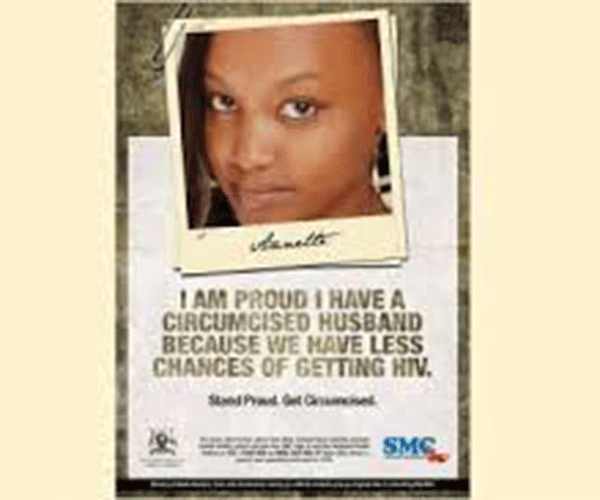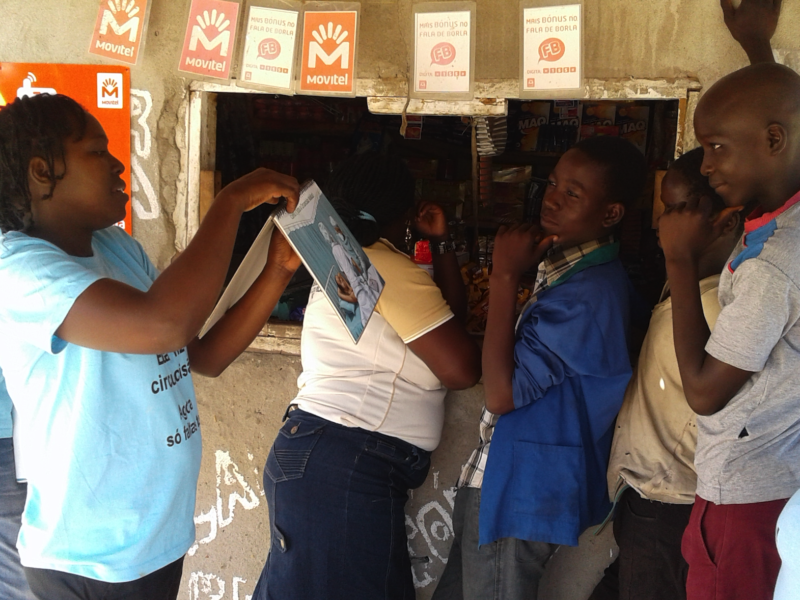When James Onen (“Fat Boy”), a radio personality on the Sanyu FM Breakfast Show in Uganda, mentioned that he saw a billboard of a woman saying, “I am proud I have a circumcised husband because we have less chances of getting HIV,” the Sanyu telephone lines became jammed with callers.
But Fat Boy and his listeners are not alone. The topic on everyone’s lips across Uganda today? Male circumcision.
Male circumcision has become a hot topic since the Ministry of Health in Uganda launched the Safe Male Circumcision (SMC) campaign in December 2011. The Health Communication Partnership provided technical assistance for the campaign which was funded by USAID.
Among the listeners who heard Fat Boy mention the controversial SMC poster on his radio show were two members of the SMC campaign team. They quickly sent Fat Boy a packet of information about male circumcision and offered to appear live on his show.
The next morning, Dr. Vincent Kawooya from the Makerere University School of Public Health appeared on Fat Boy’s Breakfast Show and skillfully responded to the listeners’ concerns.
Reflecting on the show, Fat Boy exclaimed, “The response was incredible! There were [so many different] reactions from the audience!”
The questions from callers ranged from those who wanted to know whether research had demonstrated that safe male circumcision does reduce HIV infection, to those who argued that SMC was a license for promiscuity. One caller suggested that a married woman wanting her husband to be circumcised is the equivalent of permitting him to be unfaithful. The debate was intense, just as the creators of the SMC campaign had hoped.
Dr. Kawooya explained that male circumcision only partially protects against HIV infection and that to be fully protected one should use condoms, engage in sexual relations with just one faithful, uninfected partner or abstain altogether.
According to the Uganda HIV/AIDS Sero-behavioral Survey 2004, over the course of their lives, 88% of Ugandan men will be unfaithful. Given these statistics, many women in Uganda want their men to get circumcised. The SMC campaign capitalizes on this fact, though this is what generated the greatest debate among Sanyu’s mostly educated, urban, male callers during both radio programs. HCP estimates that 12,000 people listened to the original radio show and the response show featuring Dr. Kawooya, and believes that the SMC campaign billboards, radio and TV spots will generate an even broader-reaching debate.
Fat Boy reiterated a concern expressed by some male callers: that although the decision to circumcise is voluntary, the campaign will pressure men to take action. Nevertheless, given the high rate of concurrent sexual partners among Ugandan men, that peer pressure could save lives.





